Achievements of The PF Government in Seven Years (2011 – 2018): From The Perspective Of 7NDP and Vision 2030 by Davies Mwila
Notice: Undefined index: catFilterList in /home/zambi/public_html/wp-content/plugins/wp-likes/api.php on line 243
Part 3
By Hon Davies Mwila
In his address to the Fifth Session of the Eleventh National Assembly on Friday, 18th September 2015, His Excellency President Edgar Chagwa Lungu said, among other things, that:
“…Having attained 50 years of independence, Zambia has entered a new phase of socio-economic transformation for the next 50 years. This is in tandem with the African Union Agenda 2063 which highlights our aspirations and I quote: ‘to build an integrated, prosperous and peaceful Africa, an Africa driven and managed by its own citizens and representing a dynamic force in the international arena.’… It is against this background that we, as a nation, need to be adaptive, innovative and determined to change the way we do things. In this regard, the theme for my address is ‘embracing a transformational culture for a smart Zambia now’. To attain this transformation, we need to change the way we think, behave and do things”.
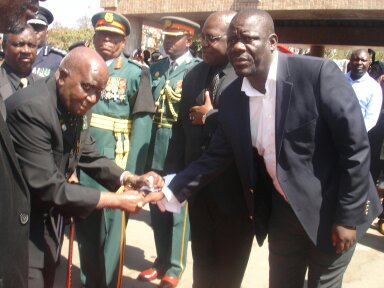
PF Sec Gen Davies Mwila with KK and Health Minister Dr Chitalu Chilufya pix by Derrick Sinjela
In concluding the aforementioned speech, President Lungu challenged the nation to work towards attaining the ideal Zambia which he described in the above quote, and as enshrined in the Vision 2030 and AU Agenda 2063. President Lungu concluded by saying:
“At the stroke of midnight on 24th October, 2064, Zambia should awaken to one undeniable truth and reality: that ours was a generation of achievers, a generation of men and women who, propelled by the energy of patriotism, changed this country forever.”
In line with President Lungu’s policy directives and challenge mentioned above, the PF Government has engaged an adaptive, innovative and a transformative approach to doing things in order to attain the Vision 2030 objective of Zambia becoming a “prosperous middle-income country by 2030”, as well as actualizing the AU Agenda 2063 objectives at national level.
In view of the above, the Patriotic Front (PF) Government is working towards actualizing the Vision 2030 objective guided by the 7NDP and the PF manifesto.
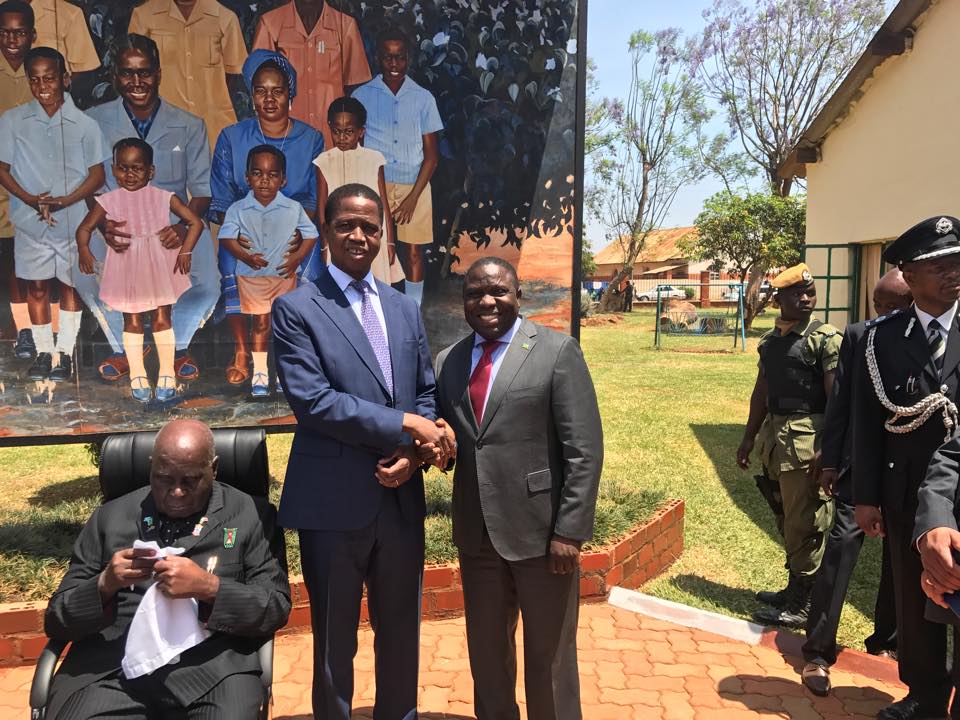
KK with Edgar Chagwa Lungu and Harry Kalaba 14 October 2017
The two previous articles discussed the strategic interventions being implemented by the PF Government.
This third article in the series will highlight additional programmes currently being implemented by the PF Government under strategic area one of the 7NDP (“Economic Diversification and Job Creation”) vis-à-vis the agriculture sector.
These additional programmes currently being implemented by the PF Government are aimed at attaining a “Diversified and Export-Oriented Agriculture Sector”, and include the following: promoting diversification within the agriculture sector; enhancing investment in agricultural infrastructure, and promoting small-scale agriculture.
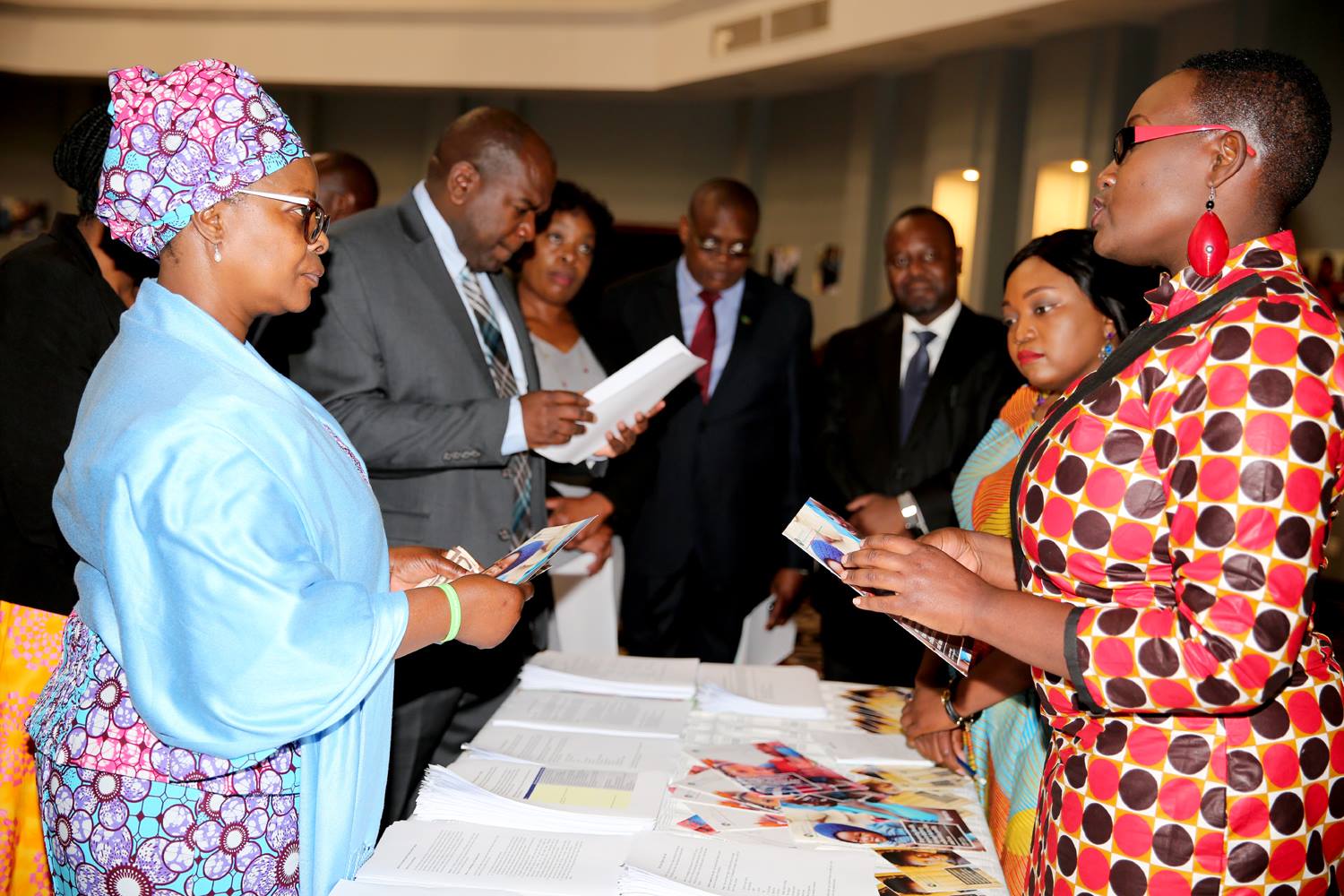
First Lady Esther Lungu listens to PATH Change Management officer Masaina Bwakya during the Ministry of Health Better Immunization Data ( BID) Initiative Show Case programme at Radisson Blu Hotel in Lusaka on Friday, July 21,2017 -Picture by THOMAS NSAMA — with Rajibul Bashar Rajib.
PROMOTING DIVERSIFICATION WITHIN THE AGRICULTURE SECTOR:
In order to achieve agricultural diversification in terms of crops, fisheries, livestock and forestry products – as espoused in the 7NDP – the PF Government under President Edgar Lungu is implementing the following programmes.
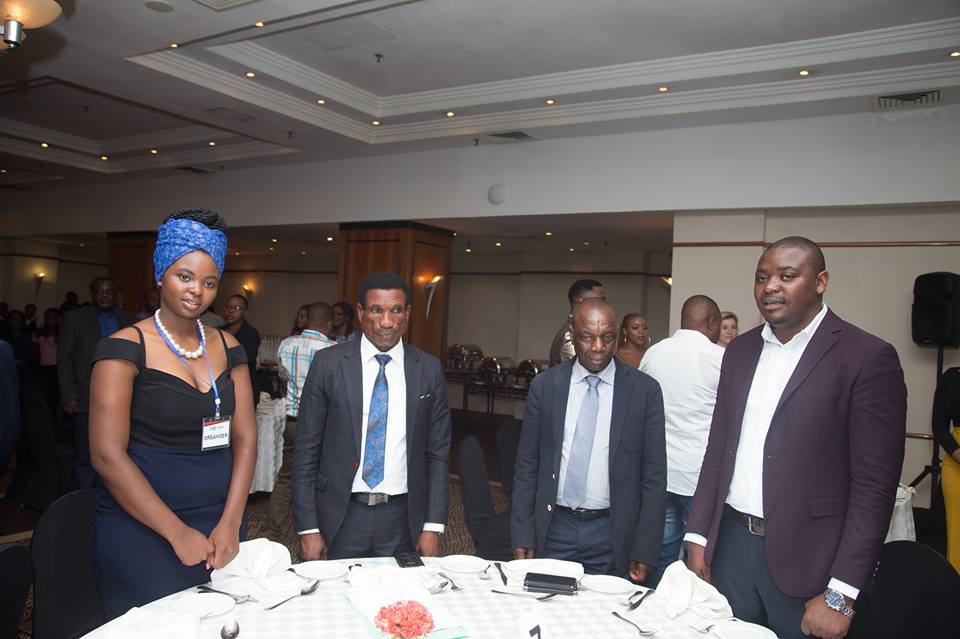
CSO Sun and Gobal Citizen host Agriculture Minister Michael Katambo
The Crop, Forestry, Fisheries and Livestock Product Diversification Programme: There are numerous strategic interventions currently being implemented by the PF Government under this Programme, some of which are espoused in the following paragraphs.
For example, in April 2018, the PF Government acquired the ZamPalm Oil Palm Tree Plantation in Kanchibiya district in Muchinga Province, from Zambeef Products Plc at a cash consideration of US Dollars 16 Million. ZamPalm Oil Tree Plantation is owned by the Zambian Government through the Industrial Development Corporation (IDC). The IDC acquired 90 percent shares in the operation from Zambeef Products Plc.
The ZamPalm Oil Tree Plantation has had the following impact: about 700 jobs have been created in Kopa Chiefdom literally lifting hundreds of families out of extreme poverty. In addition, this venture will also help stem the importation of edible oils into Zambia while earning the country significant foreign exchange through exports.

Christabel Michel Banda ZSIC Life MD at ZSIC life stand at the ongoing Agriculture & Commercial Show
Currently, only Tanzania and the Democratic Republic of Congo (DRC) produce their own palm oil crude-the rest of the countries, including Zambia, import from Malaysia and Indonesia.
There is therefore a huge market gap which Zambia can leverage through ZamPalm especially given the fact that the estate can produce up to 100 tonnes of crude palm oil in a month from its primary processing plant. And once at full capacity, the Plant could feed refineries such as the Global Industries in Ndola with a steady flow of raw materials for processing into ready-for-use edible oil all year round.
In addition to the above, production at ZamPalm is expected to be boosted by the out-grower scheme in which the initial 500 local farmers will be targeted, with more farmers to be targeted in future. In order to leverage the existing market, ZamPalm will also plant an extra 300 hectares of new palm trees each year between 2019 and 2021 which will bring the total land cover to 4, 200 hectares.
Indeed, the ZamPalm investment by the PF Government is in line with the 7NDP prescriptions to achieve economic diversification and job creation through agriculture, among others. The ZamPalm Investment is also in line with the 7NDP Development Outcome 9, Strategy Focus 7.12.4, and Strategy 4 which aims at increasing job opportunities in rural areas by promoting rural infrastructure development, agro-value chain development and labour-intensive industries in rural areas such as ZamPalm Oil Tree Plantation.
Similar to the ZamPalm venture, the PF Government is further delivering economic diversification and employment creation by opening of a “Pineapple Processing Plant” in North Western province and a “Fruit Processing Plant” in Eastern province.
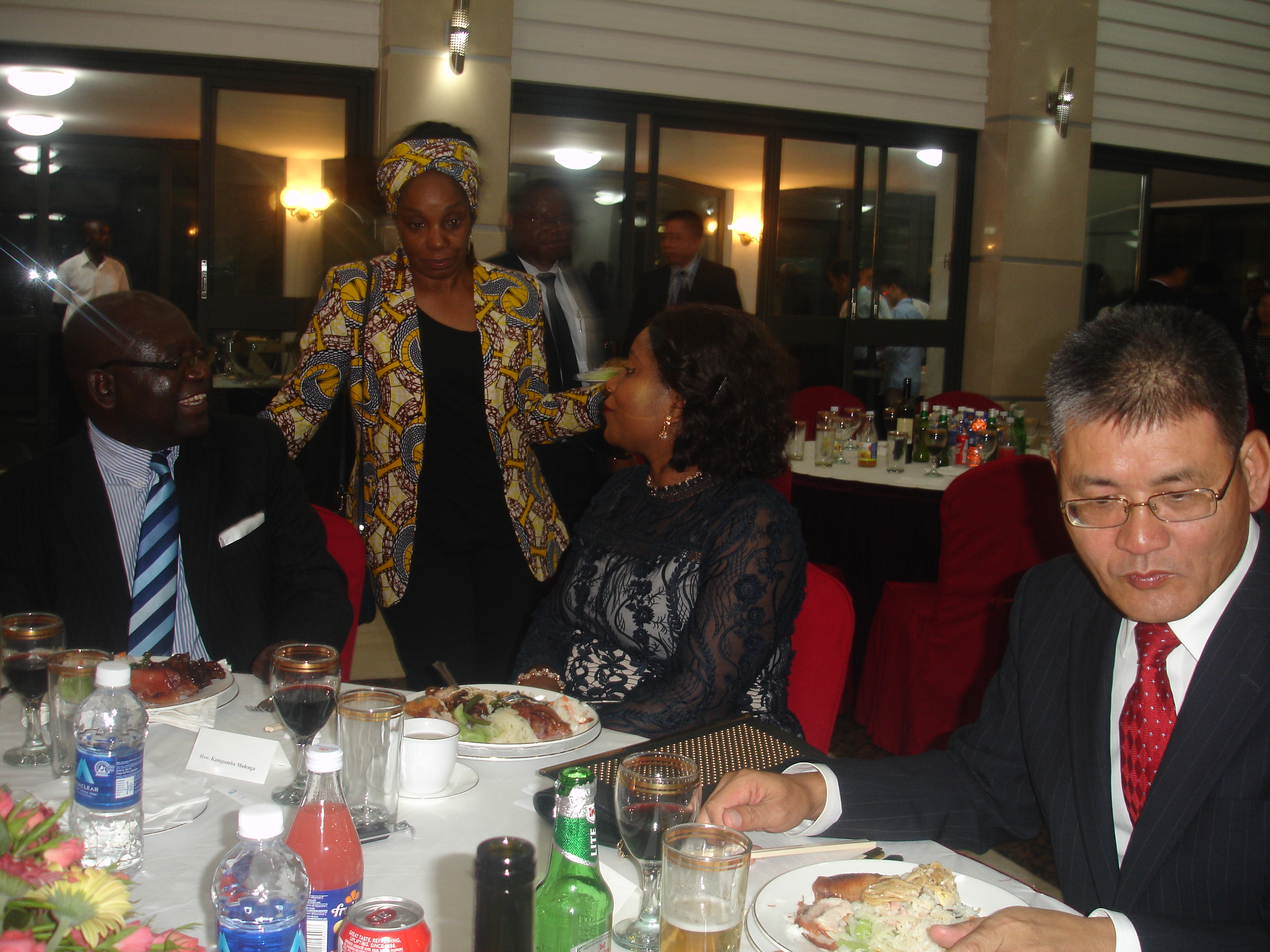
Information Minister Kampamba Mulenga at First China Zambia Media Awards 12 Dec 2017 pix by Derrick Sinjela
Furthermore, the PF Government under President Edgar Lungu, launched the US Dollar 55.4 Million Cashew Nut Project in 2015 in Western Province with the aim of diversifying the economy and creating employment. For instance, by 30th November, 2017, this US Dollar 55.4 Million Project in Western Province had directly benefitted 15, 000 farmers in Western Province. At full capacity, the Project will benefit a total of 60, 000 targeted beneficiaries in the 10 participating districts in Western Province.
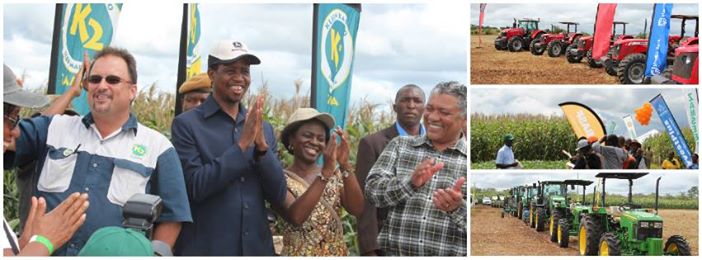
Zambia’s President Edgar Chagwa Lungu with Agriculture Minister Given Lubinda at an Agritech Zambia event-Agritech Expo Zambia is Zambia’s leading outdoor agriculture expo. Agritech Expo Zambia is a business-to-business platform for agricultural professionals.
The PF Government has also successfully revived the Kawambwa Tea Estate, which is currently fully operational. At present, the PF Government has invested over K30 Million into the Estate, and this has led to the creation of five hundred (500) direct local jobs.
In order to further accelerate economic diversification as well as create employment in rural areas, the PF Government is also seeking prospective investors with the capacity to commercialize the production of Salt in Mpika District and other viable projects within the district and other areas countrywide.
ENHANCING INVESTMENT IN AGRICULTURAL INFRASTRUCTURE
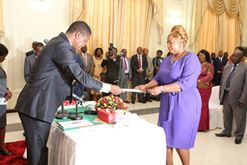
Patriotic Front (PF) Petauke Member of Parliament(MP) and Agriculture Minister Dora Siliya being sworn by President Edgar Chagwa Lungu ay State House in Lusaka, Zambia.
Significant investments in agricultural infrastructure development are one of the “pillars” for achieving sustainable agricultural development. It is against this background that the Patriotic Front Government has significantly enhanced investments in agricultural infrastructure development aimed at strengthening the sector’s capacity to produce process and market its various products competitively across domestic, regional and international markets.
Consequently, the PF Government has since constructed livestock breeding centres such as the Goat-breeding centre in Mpika district at a cost of K340, 000 to promote livestock in the area and Chishinga breeding centre for bull breeding in Luapula province to empower local farmers with good breeding stocks for improving their current herds. Others include milk collection centers, satellite artificial insemination service centres and permanent artificial insemination centres in different parts of the country.
Conclusion
The Patriotic Front Government’s visionary approach to wealth planning for Zambia through the implementation of the PF Manifesto as well as the 7NDP is designed to support the attainment of the goals of Vision 2030 which will in turn lay the foundation for turning Zambia into a Developed Country by 2064.
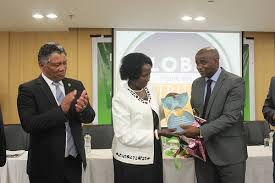
William Chilufya with Vice President Inonge Wina and Agriculture Minister Given Lubinda
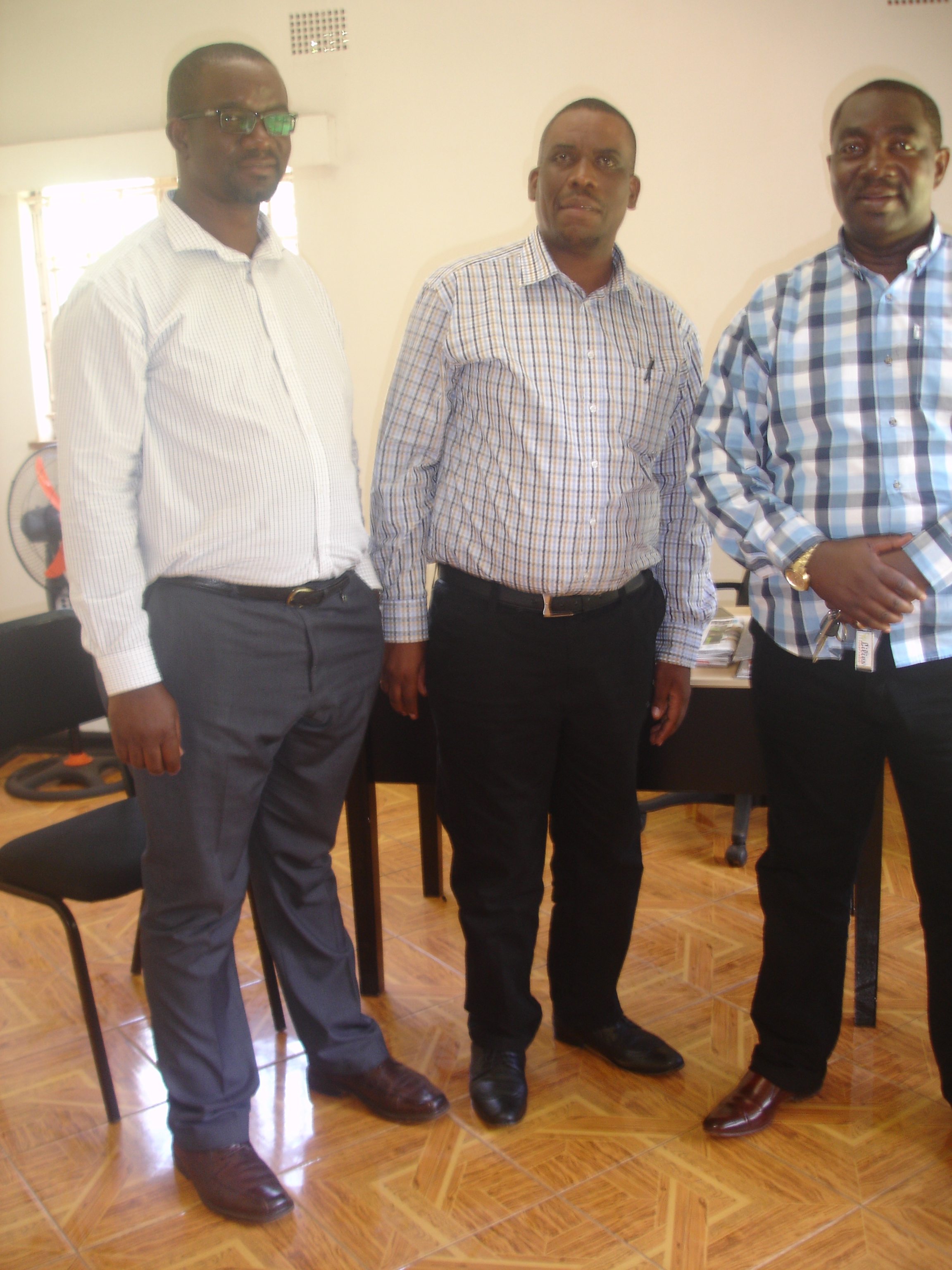
Party of National Unity President Highvie Hamududu, Vice President Anthony Makuwa Lusaka and Secretary General Kasote Singogo 2017 Dec pix by ZADEMA
The PF led by President Edgar Chagwa Lungu is laying the foundation not just for the next generation, but also for subsequent generations to come by taking significant steps towards the cross generational accumulation, conservation, utilisation and transfer of the wealth of Zambians yet to be born.
At the stroke of midnight on 24th October, 2064, Zambia will indeed awaken to one undeniable truth and reality: that ours was a generation of achievers, a generation of men and women who, propelled by the energy of patriotism, changed this country forever. The Author Davies Mwila is Patriotic Front (PF) Secretary General



















